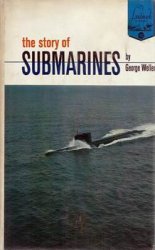At the end of World War II, Africa had already been exposed to over
half a century of colonial rule. Although many Europeans complacently
assumed that colonialism was a necessary evil in the process of
introducing civilization to the backward peoples of Africa and Asia, to some African
intellectuals, the Western drive for economic profit and political hegemony was a
plague that threatened ultimately to destroy civilization. It was the obligation of
Africans to use their own humanistic and spiritual qualities to help save the human
race. The Ghanaian official Michael Francis Dei-Anang agreed. In Whither Bound Africa,
written in 1946, he scathingly unmasked the pretensions of Western superiority:
Forward! To what?
The Slums, where man is dumped upon man,
Where penury
And misery
Have made their hapless homes,
And all is dark and drear?
Forward! To what?
The factory
To grind hard hours
In an inhuman mill,
In one long ceaseless spell?
Forward! To what?
To the reeking round
Of medieval crimes,
Where the greedy hawks
of Aryan stock
Prey with bombs and guns
On men of lesser breed?
Forward to CIVILIZATION.1
To Africans like Dei-Anang, the new Africa that
emerged from imperialist rule had a duty to seek
new ways of resolving the problems of humanity.
In the three decades following the end of
World War II, the peoples of Africa were gradually
liberated from the formal trappings of European
colonialism. The creation of independent
states in Africa began in the late 1950s and proceeded
gradually until the last colonial regimes
were finally dismantled. But the transition to independence
has not been an unalloyed success.
The legacy of colonialism in the form of political
inexperience and continued European economic
domination has combined with overpopulation
and climatic disasters to frustrate the new states’
ability to achieve political stability and economic
prosperity. At the same time, arbitrary boundaries
imposed by the colonial powers and ethnic
and religious divisions within the African countries
have led to bitter conflicts, which have
posed a severe obstacle to the dream of continental
solidarity and cooperation in forging a common
destiny. Today, the continent of Africa,
although blessed with enormous potential, is one
of the most volatile and conflict-ridden areas
of the world. Michael Dei-Anang’s dream of a
unique African road has not yet been realized. •




 World History
World History









